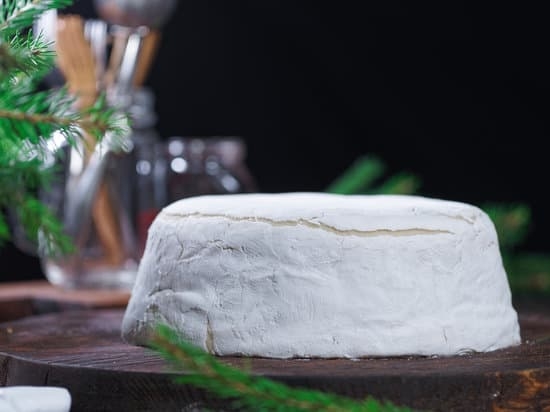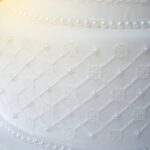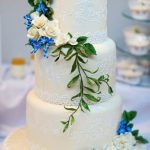Cake decorating stencils are versatile tools that can elevate the appearance of your baked creations with intricate designs and patterns. In this article, we will explore how to use cake decorating stencils effectively to add a professional touch to your cakes.
To begin with, understanding the basics of cake decorating stencils is essential. From choosing the right stencil design to mastering the techniques for applying them onto your cakes, these handy tools can make a significant difference in the visual presentation of your desserts.
Whether you are a novice baker or an experienced pastry chef, learning how to use cake decorating stencils can open up a world of creative possibilities. In the following sections, we will discuss the necessary tools and materials needed, provide a step-by-step guide on preparing your cake for stenciling, and offer tips and tricks for achieving clean and sharp designs with ease.
Necessary Tools and Materials for Using Cake Decorating Stencils
Cake decorating stencils can add a touch of elegance and creativity to your baked goods, but in order to use them effectively, you will need the right tools and materials. Here is a breakdown of the necessary items you will need to successfully use cake decorating stencils:
1. Stencils: The most essential item for this task is, of course, the cake decorating stencil itself. These stencils come in a variety of designs and patterns, so choose one that fits the theme or occasion of your cake.
2. Offset Spatula: An offset spatula is handy for spreading frosting evenly on your cake before applying the stencil. This tool will help ensure a smooth surface for stenciling.
3. Edible Spray Paint or Dusting Powders: Depending on the effect you want to achieve, you can use edible spray paint or dusting powders to add color or shimmer to your stenciled design.
4. Stencil Tape or Magnets: To keep your stencil in place while applying the design, consider using stencil tape or magnets to secure it firmly on the surface of your cake.
5. Paper Towels and Cleaning Wipes: Keeping paper towels and cleaning wipes nearby will help you quickly clean up any smudges or mistakes while working with the stencils.
Now that you have gathered all the necessary tools and materials, let’s dive into how to use cake decorating stencils effectively for stunning results.
Step-by-Step Guide on Preparing Your Cake for Stenciling
Cake decorating stencils are a fantastic tool to elevate the overall look of your baked creations. In order to achieve professional and clean designs on your cake, proper preparation is key. Here is a step-by-step guide on how to prepare your cake for stenciling:
1. Choose the Right Cake:
Before applying any stencils, it’s crucial to start with a smooth and leveled cake surface. Whether you’re working with buttercream or fondant, make sure your cake is baked and cooled completely before moving forward.
2. Crumb Coat Your Cake:
To create a flawless canvas for your stencil design, applying a crumb coat is essential. This thin layer of frosting locks in any loose crumbs and provides a smooth base for further decoration.
3. Chill Your Cake:
After applying the crumb coat, place your cake in the refrigerator to allow the frosting to set. Chilling your cake helps prevent smudging or smearing when you eventually place the stencil on top.
By following these simple steps, you’ll be well on your way to successfully using cake decorating stencils on your baked goods. Stay tuned for the next section on techniques for applying stencils on both fondant and buttercream.
Techniques for Applying Stencils on Fondant and Buttercream
When it comes to using cake decorating stencils on fondant and buttercream, there are different techniques that can help you achieve beautiful and professional-looking designs on your cakes. Here are some tips to use these stencils effectively:
- Smooth the surface: Before applying the stencil, ensure that the fondant or buttercream surface of your cake is smooth and free from any bumps or imperfections. This will help the stencil adhere properly and prevent any smudging during the process.
- Secure the stencil: To keep the stencil in place while working on your cake, you can use masking tape or edible adhesive to secure it onto the cake’s surface. This will prevent any shifting or movement that may cause smudges in your design.
- Use a steady hand: When applying icing over the stencil, use a smooth and consistent motion to avoid any unevenness in the design. Take your time and work slowly to ensure precision in transferring the pattern onto your cake.
Overall, practicing these techniques while using cake decorating stencils on fondant and buttercream will help you create flawless designs with ease. Experiment with different patterns and colors to unleash your creativity and enhance the look of your cakes for any occasion.
Remember, practice makes perfect when it comes to mastering how to use cake decorating stencils effectively on fondant and buttercream. Start with simple designs and gradually move on to more intricate patterns as you gain confidence in using these tools for decorating your cakes.
Tips and Tricks for Achieving Clean and Sharp Designs With Cake Stencils
When it comes to using cake decorating stencils, achieving clean and sharp designs is essential for a professional finish. One key tip to remember is to ensure that your cake surface is smooth and level before applying the stencil. This can be done by using a flat spatula to evenly spread the frosting or fondant on the cake. Any bumps or uneven surfaces can impact the final result of the stenciled design.
Another important aspect of achieving clean designs with cake stencils is securing the stencil firmly in place. You can use small pieces of tape or food-safe adhesive to prevent the stencil from shifting during application. Additionally, make sure to hold the stencil steady with one hand while using a palette knife or an airbrush tool with the other hand to apply the icing or coloring over the stencil openings.
To enhance the sharpness of your designs when using cake decorating stencils, consider chilling the cake briefly before applying the stencil. This will help the icing or fondant set faster and reduce any smudging that may occur during the stenciling process. It’s also helpful to practice on a spare piece of fondant or parchment paper before working on your actual cake to get a feel for how much pressure and precision are needed when using stencils.
| Tips | Tricks |
|---|---|
| Ensure smooth and level cake surface | Secure stencil firmly in place |
| Hold stencil steady while applying icing | Chill cake briefly before applying stencil |
Creative Ways to Use Cake Decorating Stencils for Special Occasions
Cake decorating stencils are versatile tools that can be used in a variety of creative ways to enhance the appearance of your cakes for special occasions. Whether you are celebrating a birthday, anniversary, wedding, or any other event, stencils offer endless possibilities for adding unique designs and personal touches to your baked creations. In this section, we will explore some imaginative ways to use cake decorating stencils to elevate the visual appeal of your desserts.
Customized Messages and Quotes
One fun and meaningful way to use cake decorating stencils is to add personalized messages or quotes to your cakes. Whether you want to celebrate a milestone birthday or send a heartfelt message to a loved one, stenciling words or phrases onto your cake can create a memorable and touching display. You can choose from a variety of fonts and styles to suit the theme of your occasion, creating a truly custom look for your dessert.
Themed Designs and Patterns
For themed events such as Halloween parties, baby showers, or bridal showers, cake decorating stencils offer an easy way to incorporate specific designs and patterns onto your cakes. From spooky spider webs to delicate floral motifs, there are countless stencil options available to suit any theme or style. By using coordinating colors and strategic placement, you can create stunning visual effects that will impress your guests and elevate the overall aesthetic of your dessert table.
Layered Dimension and Texture
Another creative technique for using cake decorating stencils is to create layered dimension and texture on your cakes. By layering multiple stencil designs in different colors or shades of icing, you can achieve a multi-dimensional effect that adds depth and interest to your dessert.
This method works particularly well for modern or abstract cake designs where bold shapes and patterns are desired. Experiment with different stencil combinations and placements to create eye-catching results that will make your cakes truly stand out at any special occasion.
Troubleshooting Common Issues When Using Cake Decorating Stencils
Stencil Slipping or Moving During Application
One common issue that cake decorators may face when using stencils is the stencil slipping or moving during the application process. To prevent this, make sure to secure the stencil firmly in place on the cake before applying any icing or edible spray. You can use gentle pressure or even a small amount of edible adhesive to keep the stencil in place as you work on your design.
Blurred Designs or Bleeding Colors
Another issue that may arise when using cake decorating stencils is blurred designs or bleeding colors. This can happen if excess moisture from the icing or spray seeps under the stencil, causing the colors to run together. To avoid this problem, make sure that your icing or spray consistency is not too wet. Additionally, patting the stencil gently with a paper towel before removing it can help absorb any excess moisture and prevent blurring.
Uneven Design Transfer
If you notice that your design looks uneven or incomplete after removing the stencil, it could be due to inconsistent pressure applied while stenciling. To achieve a clean and sharp design, practice applying even pressure across the entire stencil surface. You can also try using a flat-edged scraper or spatula to smooth out the icing before lifting the stencil for a more uniform transfer.
By addressing these common issues proactively and following proper techniques, you can enhance your cake decorating skills and create stunning designs with ease. Remember that practice makes perfect when it comes to using cake decorating stencils, so don’t be afraid to experiment and refine your skills over time for consistently impressive results.
Cleaning and Storing Your Cake Decorating Stencils for Longevity
In conclusion, mastering the art of using cake decorating stencils can elevate your baking skills to a whole new level. By following the step-by-step guide and utilizing the necessary tools outlined in this article, anyone can achieve professional-looking designs on their cakes. Whether you are working with fondant or buttercream, understanding the techniques for applying stencils properly is crucial in achieving clean and sharp designs.
Additionally, exploring creative ways to use cake decorating stencils for special occasions can add a personalized touch to your baked goods. From birthdays to weddings, the possibilities are endless when it comes to enhancing your cake decorations with stencils. Remember to not only focus on the design itself but also pay attention to details such as color choices and placement for a truly impressive end result.
Lastly, ensuring the longevity of your cake decorating stencils is essential for continued use and success in your baking endeavors. By following proper cleaning and storing procedures, you can extend the lifespan of your stencils and maintain their quality over time. With dedication, practice, and a little creativity, anyone can master how to use cake decorating stencils like a pro and create stunning works of edible art for any occasion.
Frequently Asked Questions
What Kind of Icing Do You Use for Cake Stencils?
Using royal icing is a popular choice for cake stencils because of its thick consistency, which prevents the icing from bleeding under the stencil. It dries quickly and creates a clean, crisp design on the cake.
How Long to Chill Cake Before Stenciling?
It is recommended to chill the cake for at least 30 minutes before stenciling to ensure that the surface is firm enough to hold the stencil in place without damaging the frosting. This helps create a sharp and precise design on the cake.
Why Is My Stencil Not Working on My Cake?
If your stencil is not working on your cake, there could be several reasons why. The frosting may be too soft, causing it to smudge when applying the stencil. Make sure to chill the cake properly before stenciling to prevent this issue.
Additionally, using too much pressure when applying the stencil can also cause it to not work correctly by pushing the icing underneath. Lastly, be sure that your stencil is clean and dry before using it on the cake to avoid any unwanted smudging or bleeding of colors.

Welcome to our cake decorating blog! My name is Destiny Flores, and I am the proud owner of a cake decorating business named Cake Karma. Our mission is to provide delicious, beautiful cakes for all occasions. We specialize in creating custom cakes that are tailored specifically to each customer’s individual needs and tastes.





